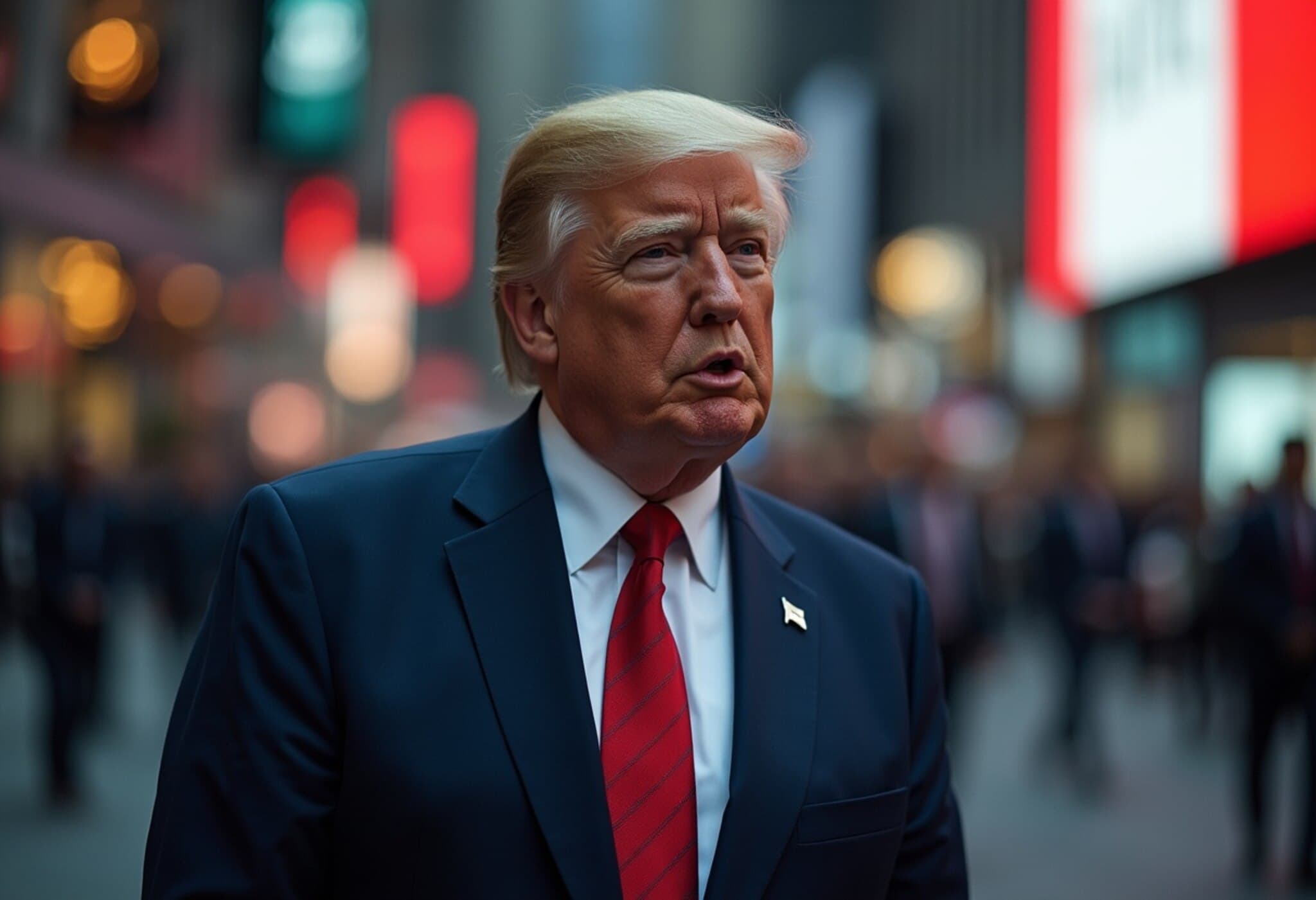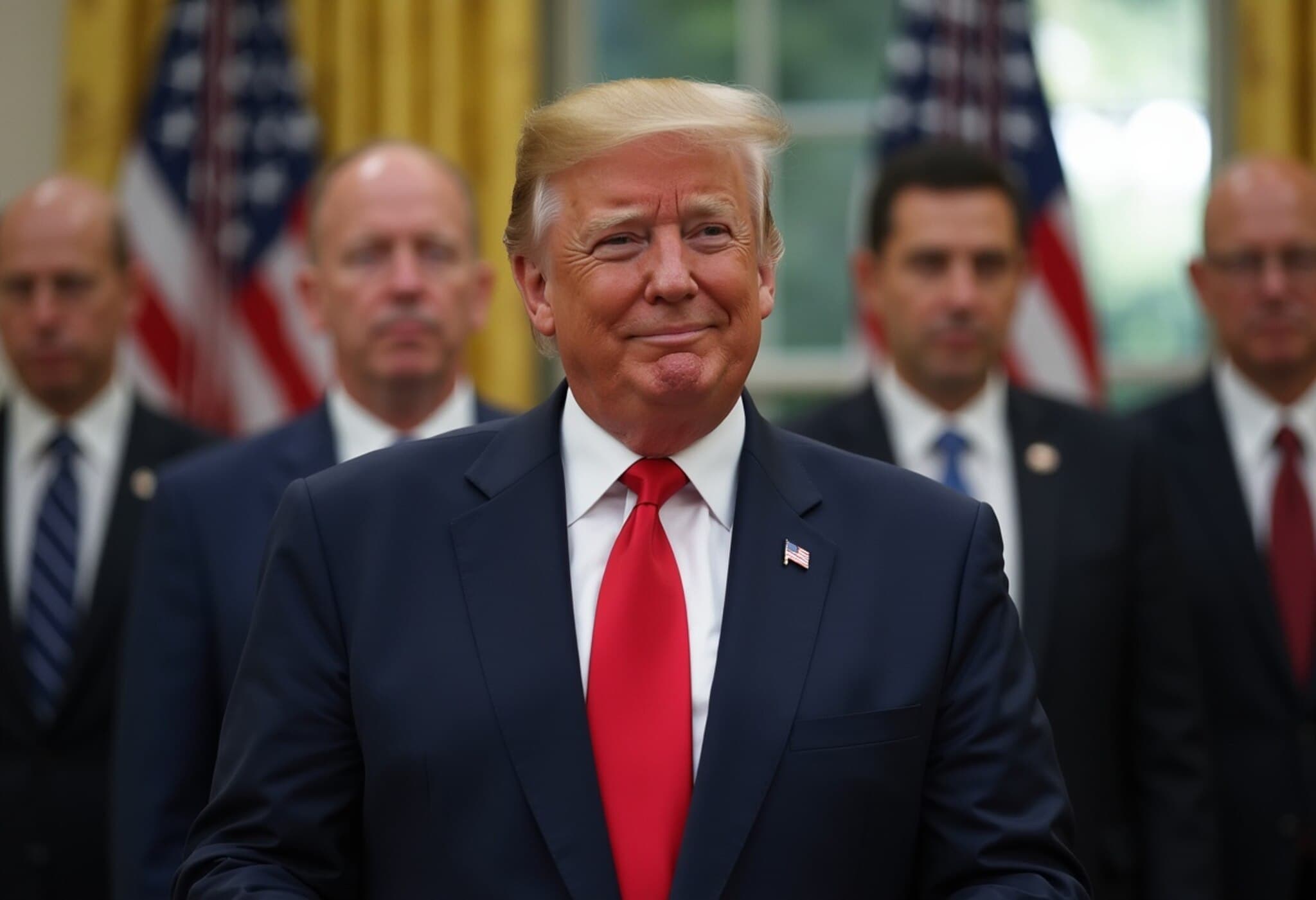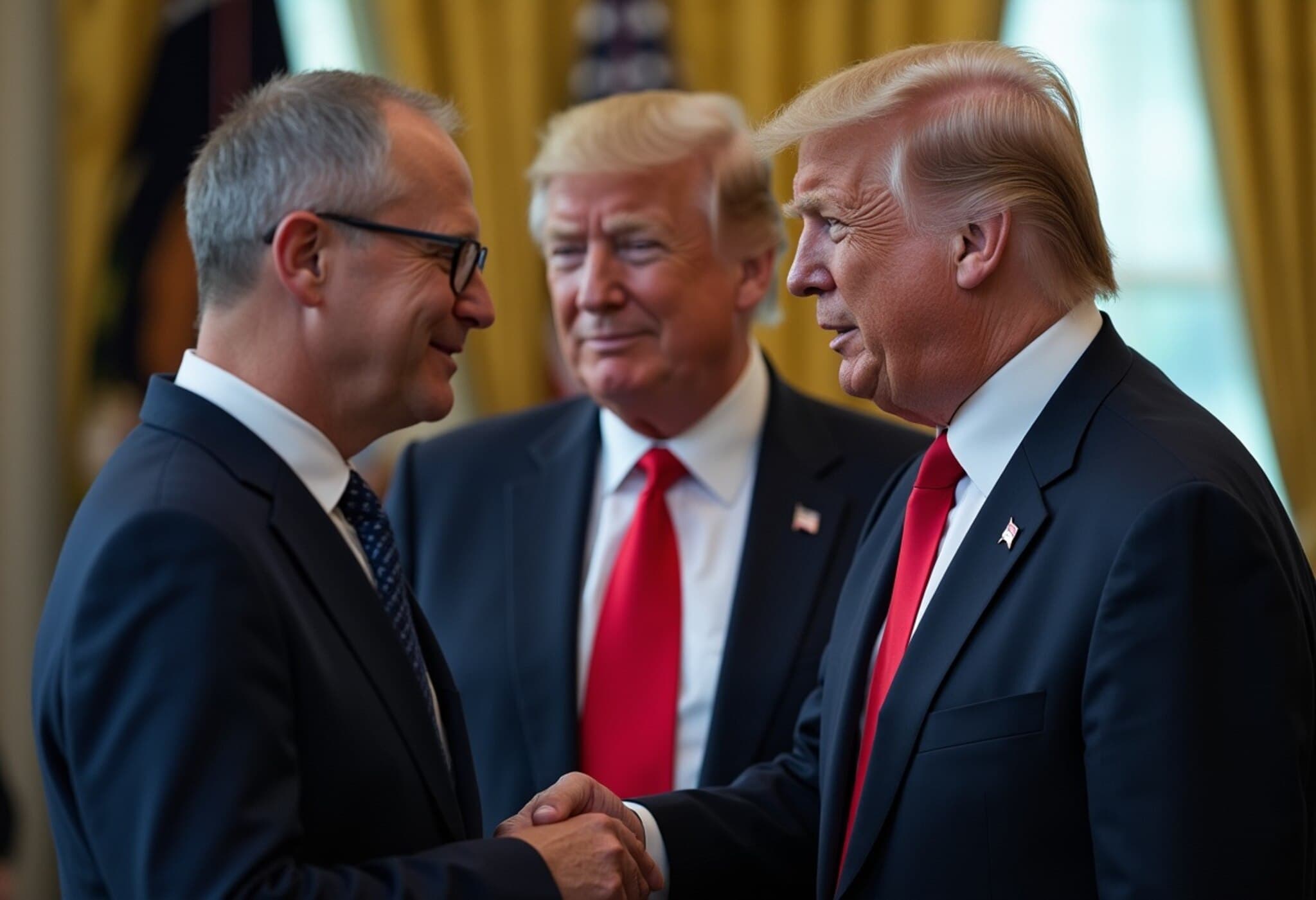Apple Achieves Biggest Weekly Gain Since Mid-2020 Following White House Announcement
Apple Inc. witnessed a remarkable 13% jump in its stock price this past week — marking its most substantial weekly increase in over five years — propelled by CEO Tim Cook’s high-profile appearance alongside then-President Donald Trump at the White House on Wednesday, August 6, 2025. This move added more than $400 billion in market capitalization, elevating Apple’s value to a staggering $3.4 trillion, cementing its status as the third-most valuable U.S. company behind Amazon and Microsoft.
Commitment to American Manufacturing: A $100 Billion Pledge
During the White House event, Apple announced an ambitious plan to invest $100 billion over the next four years to bolster American companies and increase sourcing of U.S.-made components, including computer chips. This initiative not only underscores Apple’s strategic shift to expand domestic supply chains but also signals a strong vote of confidence in U.S. manufacturing capabilities.
President Trump welcomed Apple’s commitment enthusiastically, emphasizing that this move would exempt Apple from potential future tariffs on imported chips — tariffs that could have doubled costs. For investors and industry watchers alike, this assurance alleviated lingering concerns about tariff-related profit pressures that Apple highlighted just last month, when the company forecasted exceeding $1 billion in tariff expenses for the current quarter.
Market and Analyst Reactions: Navigating Uncertainty With Expertise
JP Morgan analyst Samik Chatterjee praised Apple and Cook’s handling of tariff uncertainties, calling their approach a "masterclass in managing market anxieties." With an overweight rating on Apple stock, Chatterjee’s confidence reflects a broader optimism fueled by recently reported quarterly earnings that showed a 10% overall revenue increase and a strong 13% growth in iPhone sales.
Broader Economic and Policy Implications
- U.S. Economic Impact: Apple’s $100 billion investment pledge is expected to create jobs and encourage innovation within domestic manufacturing sectors, aligning with ongoing governmental priorities for supply chain resilience.
- Trade Policy Dynamics: The tariff exemption deal for Apple suggests a potential shift in trade policy flexibility, especially when companies demonstrate concrete efforts to source products domestically.
- Investor Confidence: The market’s positive response illustrates how tangible corporate commitments and government collaboration can restore investor confidence amid global trade tensions.
Looking Forward: What This Means for Apple and the Tech Industry
Apple’s significant commitment to U.S.-based suppliers could set a precedent for other tech giants grappling with the challenges posed by tariffs and international supply chain vulnerabilities. As the global geopolitical landscape continues evolving, American tech firms may increasingly prioritize domestic manufacturing to mitigate risks and capitalize on incentive programs.
Moreover, this development arrives at a time when governments worldwide are emphasizing technology sovereignty and economic nationalism. Apple's move could signal a broader trend of reshoring and supply chain diversification across the industry.
Editor’s Note
Apple’s recent stock surge and investment pledge not only highlight strategic corporate maneuvering but also reflect the complex interplay between technology, trade policy, and economic nationalism in the U.S. As the company navigates tariff challenges by doubling down on American manufacturing, it raises important questions about the future of global tech supply chains, the sustainability of such investments, and the impact on innovation. Will Apple’s $100 billion commitment inspire similar actions from peers? And how will evolving trade policies continue to shape the competitiveness of U.S. tech companies? These dynamics are crucial to watch as we move forward.












